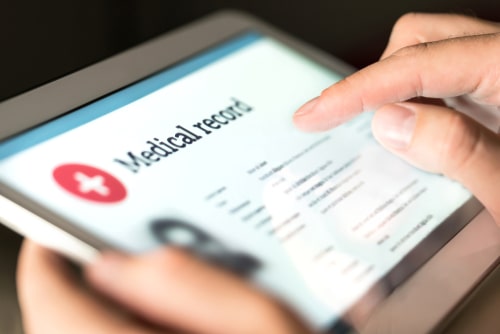In a personal injury case, the burden of proof rests with the plaintiff. This means they must present strong evidence that proves another person’s negligence caused their injuries and other damages. Sadly, evidence can be destroyed, tampered with, or even lost as time goes on, which is why it is vital to take steps to conserve it, the first of which should be contacting an attorney. The Portsmouth personal injury attorneys at Shapiro, Washburn & Sharp understand how important the preservation of evidence through methods such as taking pictures and sending spoliation letters is to the outcome of a personal injury claim. Call us today to schedule a free consultation.
What Does “Spoliation of Evidence” Mean?
Spoliation of evidence is a term that refers to the accidental or willful destruction of evidence relevant to a case, causing it to become unusable or diminishing its value to the case. Spoliation of evidence can occur in any type of personal injury case, such as car accidents, dog bites, slip-and-fall accidents, and truck accidents.
For instance, if a car is taken to a body shop after an accident where it is repaired, repainted, and cleaned, vital evidence could be lost. Other forms of physical evidence that could be spoliated include:
- Pictures
- Documents
- Vehicle damage
- Device that caused the injury
- Hazardous condition on a property
These and other types of physical proof can be altered, repaired, tampered with, and even destroyed.
What Happens if Evidence is Deliberately Spoliated?
The consequences can be quite serious for anyone who knowingly allows the spoliation of evidence in a personal injury case, particularly if that evidence was damaging to their case. Courts have the authority to penalize those who tamper with evidence in order to hurt or help a case via fees, fines, and even incarceration.
Due to the serious consequences of deliberate spoliation, it is essential to work with a Portsmouth personal injury attorney who knows the duties the at-fault party has for conserving evidence that could be advantageous to your injury claim.
How Can Spoliation Be Prevented?
Fortunately, to prevent the spoliation of evidence that could be crucial to your case, there are steps you can take, such as:
- Filing an incident report or a police report
- Getting witness statements and contact details
- Taking pictures and videos of the accident scene
- Seeking prompt medical attention
- Keeping a journal that documents your injuries, your pain, and how your daily life has been affected
Since spoliation largely involves material proof, make sure you make copies of any necessary paperwork and documents, such as notes from your doctor, and back up all of your videos and pictures.
There are also steps your attorney can take, such as:
- Anti-spoliation letters: If opposing counsel has evidence your attorney feels would be influential to your case, they can draft an anti-spoliation letter that will let them know that a particular piece of evidence is important and that they may not destroy or tamper with it.
- Witness statement affidavits: If you were able to get statements or contact information from any witnesses at the scene, your attorney can build on this by getting them to sign a statement articulating exactly what they saw and submitting it to the official record.
- Depositions: While an affidavit is useful for written statements, your attorney may be able to take the preservation of witness testimony a step further in the form of a deposition.
Practicing Injury Law Since 1985
Although the circumstances surrounding every personal injury case are different, the Portsmouth personal injury attorneys at Shapiro, Washburn & Sharp have 70 combined years of experience helping injured clients conserve evidence and build compelling cases for compensation, like the $2.23 million wrongful death verdict we obtained for the family of a nurse who died due to medical negligence. If someone else’s negligence was the cause of your injuries, you can discuss your claim with a member of our legal team and find out what options are available to you. To schedule your free consultation, call (833) 997-1774 or fill out the simple contact form on our website. We have offices in Portsmouth, Virginia Beach, Norfolk, Chesapeake, and Hampton.
